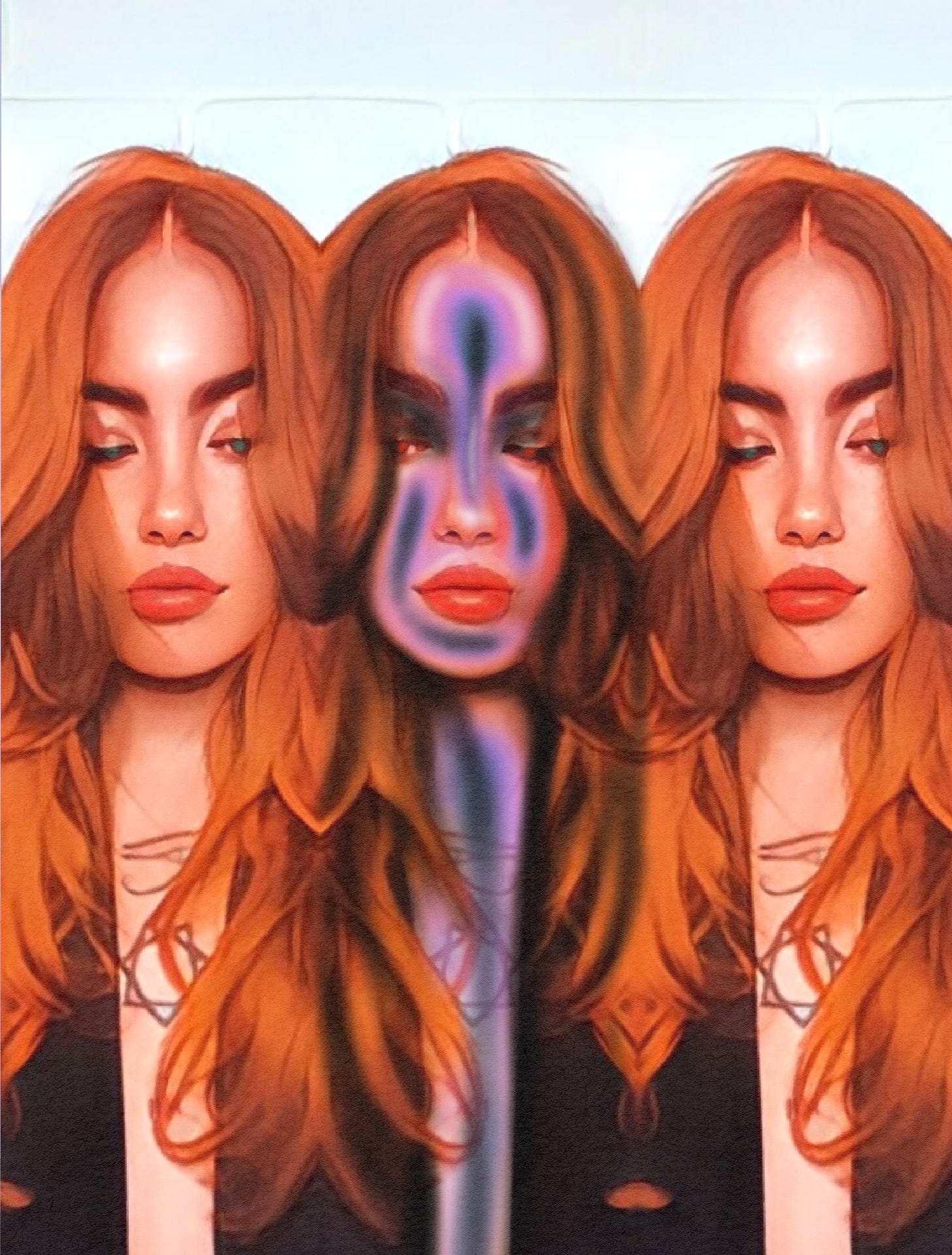What Is Autistic Burnout Really Like?
A brain that short-circuits, leaving the backup generator to do all the work.
The Masks And The Burnout I, Devany Amber Wolfe 2022
I’m using my eyes, they squint at shapes shrouded in the brightest light.
I’m using my ears, they allow sound to pervade my brain whether I like it or not.
I’m using my voice, it aches because I want to be mute.
I’m using my mind, it feels like a steel trap for grief, with endless alarm bells going off.
I’m using my legs, the shock of movement splinters my shins.
I’m using my lungs, but they do not get enough air.
I’m using my heart, but it’s bruised from caring too much.
Autistic burnout seems to be an inevitable aspect of the autistic journey. Par for the course. Lying in wait like the final boss in some very difficult video game.
It has happened to me a few times, manifesting slightly differently with each pass. The first time it happened, I was 17 - and one day I woke up and felt absolutely nothing about my life anymore. Things I once cared about - either because I deeply, genuinely was passionate about them or because I was told I had to care (and so accepted them at face value) - just faded into some unknown void. I could no longer will myself out of bed, to continue robotically performing the motions of my life, with such deep and profound struggles that only I really knew about.
High school is a notoriously difficult time for autistic kids, especially undiagnosed ones who are female. As fellow autistic educator Sarah Hendrickx discusses in her talks on how autism presents in women + girls, high school is the time when social dynamics, alongside real life demands that grow in intensity with each passing year, become endlessly complex for autistic girls. Dynamics that were once relatively simple and straightforward, albeit at times strangely hierarchical (children, after all, can occasionally be mean), become ever-more nuanced and hard to follow. This is especially true amongst girls, in girl groups or cliques. As she points out, relations become subtle and at times catty, being more about dating and clothes, hair and how one girl looked at another, ‘bitchy’ texts and the list goes on. For an autistic girl, this is deeply nebulous and hard to follow. She will inevitably spend hours, days and weeks running over girl group dialogue in her head, wondering how one interaction followed another, and all of the changeable rules, values and moods. She will spend a lot of extra time working to fit into these moulds, knowing deeply that she does not - cannot - actually fathom what is going on or why. She will learn to pick up the language and the cues, the subtle, knowing glances, the correct type of laughter - but deep inside she will be fretting endlessly and always feel on the fringes, even if from an outsiders perspective she is not.
Keep reading with a 7-day free trial
Subscribe to Fae Wolfe to keep reading this post and get 7 days of free access to the full post archives.





